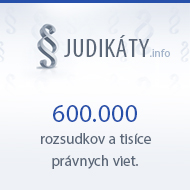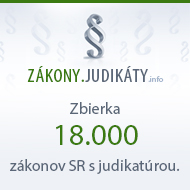feb
3
2019
Nonprofit damage when providing insight and predicting the future
Abstrakt: Mágia, hypnóza, veštenie a okultizmus sa najmä v masmédiách stávajú čoraz častejšími. Vo väčšej miere sa rozvíja alternatívna medicína, prevteľovanie, údajné techniky zdokonaľovania sa a liečenia.1 V dobe, ktorá sa vyznačuje vysokým stupňom kultúry, vzdelania a poznania prírody nie je zriedkavosťou, že sa človek uchyľuje k využívaniu služieb veštcov. Je to najmä vtedy, ak človeka trápi vážny problém a vyhľadáva pomoc veštcov, ktorí svoje remeslo často vykonávajú pochybným spôsobom. Veštci využívajú nerozumnosť a úzkostlivú situáciu svojich klientov. Prehrešujú sa proti spravodlivosti, klamú a pozbavujú ľudí vzájomnej dôvery, a to tak, že veštec predpovedá napríklad rozpad manželstva, prípadne hádky a klient tomu dôveruje, čo skutočne spôsobí, že po čase dochádza k hádkam medzi manželmi a nakoniec až k jeho rozpadu.2 Cieľom tohto článku je poukázať na to, že aj pri poskytovaní veštenia a predpovedania budúcnosti sa môže stať, že pri nekalých praktikách veštcov, ktorí vykonávajú túto činnosť za účelom obohatenia sa nemusí vzniknúť len majetková ujma na strane klientov, ale aj ujma nemajetková, ktorá môže spôsobiť výrazný zásah do osobnostných práv fyzickej osoby.
Kľúčové slová: veštenie, predpovedanie budúcnosti, veštec, nemajetková ujma
Abstract: Alternate medicine, reincarnation, alleged techniques of improvement and healing are more developed. At a time that is characterized by a high degree of culture, education, and nature, it is not a rarity that people resort to the use of the service of the elders. This is especially the case if a person has a serious problem and seeks help from the people who often perform their craft in a dubious way. The people use the irreconcilability and anxiety of their clients. They overrule justice, deceive and deprive people of mutual trust, so that most predict, for example, the breakdown of marriage or quarrels, and the client trusts that what will actually cause quarrels between the husbands and eventually to its collapse. The purpose of this article is to point out that even when providing insights and predicting the future, it may happen that in the unfair practices of peasants who carry out this activity for enrichment, not only property damage on the part of clients may be incurred, but also non-pecuniary damage that can cause significant interference personal rights of a natural person.
Key words: fortune telling, predictions of the future, fortune teller, non-material damage










